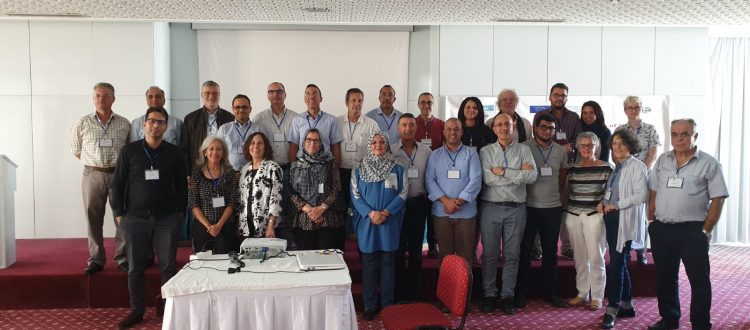STEERING COMMITEE MEETING
On October 8 and 9, 2019, the second meeting of the MEHMED consortium was held in Sousse, Tunisia, to define the general structure of the Master’s Degree. Each Maghreb university will have to get the accreditation from their respective ministries within the deadlines established in each country. The Master’s is intended for university graduates who wish to specialize in the professional analysis and management of environmental problems, in private industry or public institutions and non-governmental organizations.
The following general and specific objectives
are presented below:
OBJECTIVES
General
- To train good professionals to conceive of and enable a more sustainable and especially efficient model to address socio-economic and socio-environmental issues.
- To provide training in different scientific approaches to the study of environmental change.
- To apply them to the management of specific environmental changes at local and regional scales.
- To identify adaptation processes and instruments for sustainable management based on the evaluation of adaptive strategies.
Specific
- To acquire basic knowledge to analyse, diagnose and manage global environmental change.
- To acquire basic knowledge to manage the reduction of impacts on society and the environment and facilitate social and environmental adaptations.
- To acquire the expertise, skills and tools needed to solve the previously mentioned problems.
One of the aspects discussed and which also supports the definition of the structure of the master’s degree is the concept of competence and which ones will be those that are desired and the students should achieve and what would be their distribution in the different subjects. This first presentation about the concept of competences and its practical application to the project was given by Josep Juandó (Wusmed), renowned specialist in the field. Apart from the general and specific competences, the Master’s proposal includes a whole set of skills that students must achieve throughout their learning process.
The main conclusion of the meeting was the need to define a common block of subjects that guarantee a shared structure identifying the group of masters that will be implemented in the different participating universities. In this regard, the following subjects were determined as compulsory for the Master’s, in total 36 credits:
Scientific fundamentals
for environmental change
Interaction between environmental change and human activity
Interaction between environmental change and the natural environment
Workshop 1
Workshop 2
Introduction to GIS
GIS and environmental (impact) assessment
Introduction to multivariable analysis (I)
Introduction to multivariable analysis (II)
The master’s proposal is completed with a specific module of 45 credits linked to the profile of each of the universities:
9 free elective credits, 12 credits for practices and 18 credits for the master’s thesis.
More information: https://www.mastermehmed.com/
